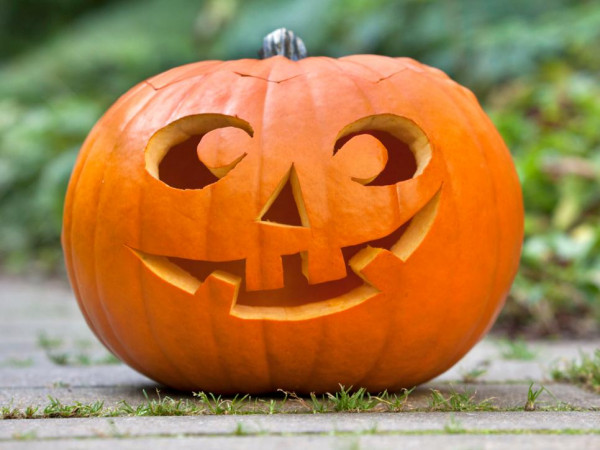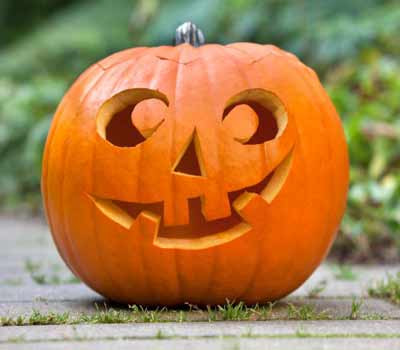Preserve carved pumpkins in various ways


Jack-o’-lanterns and other carved pumpkin designs are frequently the centerpieces of Halloween festivities. The twinkling lights and orange glow of jack-o’-lanterns can add ambiance to any autumn event. The trouble with carving pumpkins is that most people want to do it right away, only to discover their pumpkins wilt and decay long before Halloween.
Nothing ruins Halloween more than visiting a home to trick-or-treat and not getting candy. Equally disappointing is a sad pumpkin display withering away on a front porch. Even though all pumpkins will eventually rot, certain tips can keep carvings from collapsing too soon.
• Choose a sturdy pumpkin. Inspect the pumpkin of your choosing carefully, looking for gouges, spots and holes. Even a small blemish can quickly expand into a mushy mess. Select pumpkins with even color and firm flesh, and make sure that the pumpkin doesn’t feel tender when you push on the skin.
• Visit local pumpkin stands. Pumpkins that have been shipped miles and miles in hot cargo trucks may be overly ripened or battered. Pumpkins that were grown nearby may be fresher. Plus, buying pumpkins locally supports local farmers.
• Scrape the insides of the pumpkin thoroughly. Any moist bits inside the pumpkin will mold quickly. The pumpkin carving experts at Pumpkin Masters recommend scraping as much of the “guts” out as possible, leaving about a one-inch thickness of the wall of the pumpkin.
• Coat the pumpkin. Preservation methods may aim to keep the pumpkin hydrated and inhibit mold and other microbial growth. Commercially sold pumpkin preservation products, such as Pumpkin Fresh®, hold up well. Soaking and spraying carved pumpkins with a bleach-and-water solution also seems to preserve designs.
• Keep it out of the elements. Store carved pumpkins in a cool, dry place. This will help slow down the rotting process for pumpkins exposed to outdoor fungi, other microbes and warm sunlight.
• Use an artificial light source. Reduce the heat inside of the pumpkin and encourage hydration by selecting a battery-powered light instead of a lit candle to illuminate the carving.
• Skip the carving. Once pumpkin skin is compromised, microbes can enter. In lieu of carving, paint or decorate pumpkins in other ways if you want them to stay fresh for a long time. Glow in the dark paint can help pumpkins stand out at night.
Carved pumpkins may last a week or two, while uncut pumpkins can last for a month or more. Keeping pumpkins hydrated and mold-free will prolong your designs.

